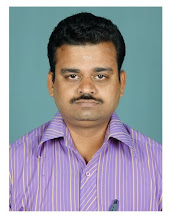
Some pointers to Chankya's Life :
The birth of Chanakya (Kautilya) and his intellectual abilities are mentioned in the Great Sri Vishnu Purana, which is one of the Sattvic puranas. Chanakya, one of the earliest political thinkers lived during the period 350-275 BC. At a very early age, Chanakya started studying Vedas. The Vedas, which are considered to be the toughest scriptures to study, were completely studied and memorized by Chanakya in his infancy. University of Takshashila (now Taxila), one of the top most centers of education at that time in India became Chanakya’s breeding ground of acquiring knowledge in the practical and in the theoretical aspects. He was attracted to studies in politics and became a student. Chanakya’s acumen and shrewdness in politics were visible right from his childhood. In this way after studying religion and politics, he turned his attention to economics, which remained his lifelong friend. After acquiring vast knowledge in various branches of studies he wanted everybody to get benefited. He believed in the broadcasting of knowledge and not in the storage of it and so he later became a professor of political science at the University.
Though Chanakya was just a professor in the Taxila University, which seemed to be far away from the happenings in the country, he actually was able to influence the governments in a big way. His students looked at him as an ideal teacher who inspired and exemplified great knowledge. His students respected him and were ready to fight at any moment at his orders. Chanakya went from Taxila to Pataliputra, which was famous as a center of learning and was known to honour scholars. Chanakya possessed an extraordinary scholarship. The scholars of Pataliputra recongnised his genius and honoured him. Chanakya became the president of the Sangha (Trust).
He took a promising young boy of ten (Chandragupta Maurya) from the streets and brought him up to become one of the greatest emperors of India. In the war of independence for Northern India, the source of strength for Chandragupta and his army was the power of mind and the towering personality of Chanakya. After Alexander’s death in Babylon, all his Satraps were either killed or dislodged, one by one. Alexander’s lieutenants divided his empire among themselves in 321 BC. No realm east of Indus was mentioned in that settlement. It meant that the Greeks themselves had accepted that this region had gone out of their rule.
Seeking revenge for being insulted in the court of the ruler of Magadha, he had vowed to dethrone the haughty Nanda king who was harassing the people of the land. The Nanda kings were ruling cruelly and imposing taxes as they liked on the subjects and had earned the hatred of the people. With determination he as a single person stood opposed to the might of the Nandas and the brain of Amatya Rakshasa. He dethroned the Nandas, put Chandragupta on the throne and also installed Amatya Rakshasa, who was trying his utmost to destroy Chandragupta, as the minister and brought into being the great Maurya dynasty of rulers.
Chanakya was a very brilliant person. He was full of determination in achieving any objective. He was well versed in all the Vedic Shastras or branches of knowledge, an expert economist; a statesman par excellence. He was a master in the four methods – of persuasion, enticement, sowing dissension, and punishment or war. He was mature in the strategy of war, and very intelligent. None could make out what was going on his mind. So secretive was he in his method and far-sighted. In any endeavor, his calculations never went wrong and he never missed his aim. He was at the same time very religious and gives to strict renunciation. Apparently of a strict nature, he could employ various methods carefully at the right time to destroy enemies. There was no branch of knowledge, which he had not mastered. He was widely experienced in the world. There seemed to be nothing, which he did now know. He was, in other words, a conglomeration of all things that make a genius. Considered in any way, persons equal to Chanakya are very rare in the world. An expression “like the strategy of Chanakya” has become proverbial.
The whole nation was bewildered by the cleverness and wit of this seeming personality who went on to single handedly unify the country with the sheer power of his character. Probably, the most accurate description of Chanakya can be found in Nehru’s words in the Discovery if India, ‘Chanakya has been called the Indian Machiavelli and to some extent the comparison in justified. But he was a much bigger person in every way, greater in intellect and reason.
Chanakya dreamt of a country reaching the following levels of development in terms of ideologies and social and economic development. A self-sufficient economy that does not depend on foreign trade. An egalitarian society where there are equal opportunities for all. Establishment of new colonies for the augmentation of resources. He also advocated the development of the already annexed colonies. His imperialistic views can be interpreted as the development of natural and man made resources. He lived his life working to his capacity in pursuit of his vision of a happy strong and prosperous India.
His works have been faithfully preserved through word of mouth for well over two thousand years. Nitishastra, a treatise on the ideal way of life shows his in depth study of Indian way of life. Many of his Nitis or politics have been compiled under the book Chanakya Niti.

No comments:
Post a Comment